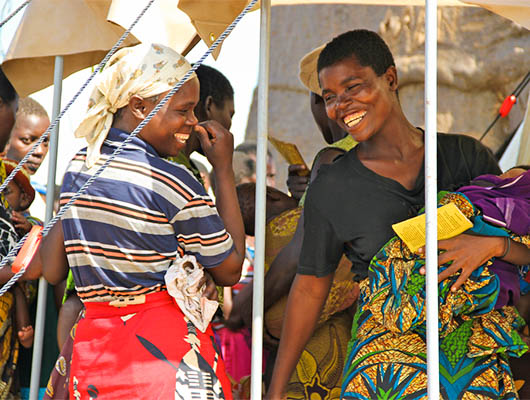UK Enacting Laws to Measure International Gender Inequality

A new collaborative study published by the Great Initiative and Plan UK, two development organizations who work to promote female rights, has reported that the United Kingdom’s Department for International Development (DfID), has reached a great success in the implementation of a new legal statute that will measure the impact of the agency’s foreign aid operations in reducing the prevalence of international gender inequality.
The International Development (Gender Equality) Act, which was put into effect last May, places a responsibility on the United Kingdom to continually assess and implement strategies designed to strengthen international gender equality within countries receiving funding for development.
The report praised DfID for establishing a new international precedent for the integration of the issue of gender inequality into broader humanitarian efforts, and noted the U.K. should encourage other Western nations to take similar measures.
Many developed nations have become involved in the battle against gender equality in recent years, including the Netherlands Ministry of Foreign Affairs who launched the Millennium Development Goal 3 Fund in 2008. This investment of nearly $100 million proved to be the largest ever government gift to support development organizations working to support gender equality efforts. According to the Association for Women’s Rights in Development, the fund impacted the lives of 220 million people, including 65.5 million women and girls, and provided assistance to over 100,000 women’s rights organizations.
The study concluded, “We were delighted to find that the act has both driven, and joined forces with, other measures to promote gender equality. At the time of our analysis (May 2015) 64 percent of the business cases in our sample contained a clear statement addressing gender impact and only 18 percent of business cases lacked this statement,” referring to 44 development projects analyzed as part of the study.
A specific case-study included within the report analyzes the impact of a DfID-funded program to repair and resurface a road within Western Uganda on gender equality. Mariella Frostrup, a founding trustee of the Great Initiative familiar with the study, stated, “It surprised us, and indeed it turned out to be one of the most transformative projects we found in our evaluation. It identifies women’s land ownership, violence against women, women’s employment and social norms and stereotypes as issues to be addressed.”
She continued in explaining, “It mandates that 25 percent of jobs on the project are reserved for women, that women’s safety and security is guaranteed and that gender sensitization and awareness projects are run alongside the actual construction.”
Justine Greening, the International Development Secretary of the UK, explained in a June interview that DfID was determined to continue pursuing the issue of gender inequality, specifically working to reduce the occurrence of female genital mutilation and child marriage. Two of the largest issues associated with gender inequality, officials hope to reduce the persistence of such human rights violations by providing continual funding and assistance to developing and impoverished regions.
– James Thornton
Sources: The Guardian, Devex
Photo: Flickr
